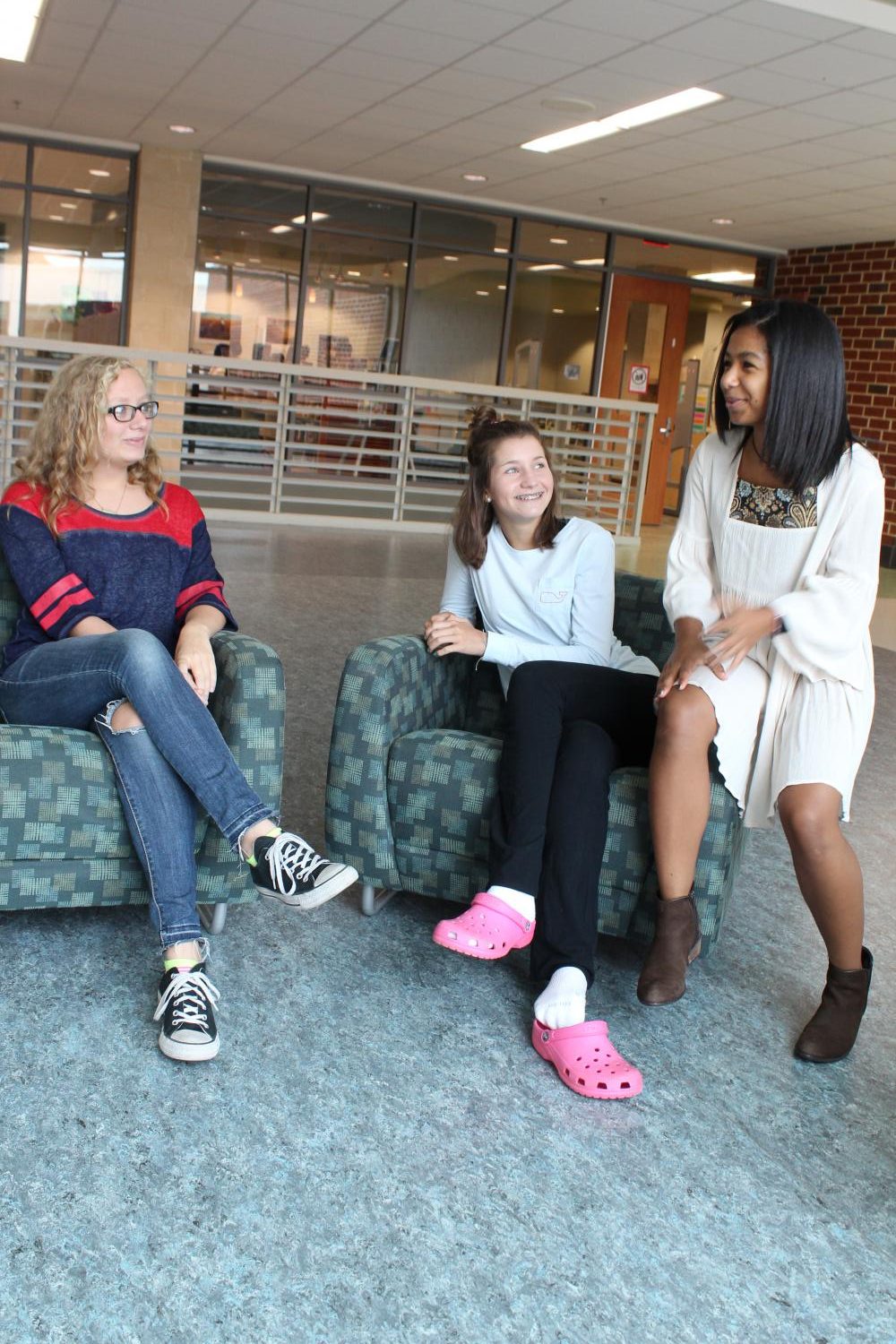
Jules is a junior and in her second year of Journalism. She is an SGA member as well as the Junior Class President. She plays varsity basketball for FCHS...


September 22, 2017
Many teenagers lack proper social skills these days, skills which are necessary to get hired or prosper in today’s workplace. In fact, some feel a lot of the blame is due to cell phones, which have encouraged people to rely so much on texting that they now find social interactions awkward and uncomfortable.
However, in order to be successful in today’s world, teens must learn some basic social skills…or risk finding themselves unemployable.
To help build these essential social skills, here are 7 tips every teen should know.
1) Proper cell phone use
When you are talking to a person, particularly someone in authority over you like a teacher or potential employer, do not pick up or look at your phone while you’re having a discussion. Instead, give that person your complete attention. Having your cell phone out while talking to someone is like saying “you’re too boring for me to give you my full attention.”
If you’re in an important meeting, make sure your phone is either off or on ”mute.” If your phone does go off during a meeting, excuse yourself from the conversation and quickly answer the notification, then give the person your full attention again.
2) Practice good phone skills
Learning to talk on a phone with confidence is an important skill because this is something that businesses look for in an employee, particularly in settings where you’re dealing with the public. When talking on the phone, be positive and polite, and don’t forget to act excited to be talking to them. “Talking on the phone forces you to put yourself out there,” said FCHS Junior Madison Nazar.
3) Show good body language
Acting relaxed, yet confident makes you look open to having a conversation. Making eye contact with the person is particularly crucial, because it shows you’re an active listener. According to Psychology Today, “Looking at another person is [also] a way of getting feedback on particular points.”
In addition, body language expert Dr. Lillian Glass recommends that you sit back in your seat rather than slouch (“a sign of assurance and confidence”), put your feet on the ground, nod while listening (but not too much), and don’t fold your arms (it can look too defensive).
4) Have good manners
First impressions are everything. When meeting someone for the first time, stand up straight, look them in the eye, give a firm handshake, and repeat their name back to them. According to Forbes Magazine “Many employers and business associates will see [a limp handshake] as a sign that you lack confidence and ability in what you do.” Proper manners and a firm handshake shows people that you are trustworthy and confident.
5) Encourage others to talk about themselves
Don’t be that one person who talks about themselves constantly and doesn’t bother to get to know the other person. Ask questions that allow them to talk about their hobbies or family, so the conversation isn’t one-sided. People love talking about themselves, and it’s a great way to find a common interest.
6) Don’t speak negatively
No one likes a negative Nancy or Nathan, so when talking, focus on being and sounding positive. Psychotherapist Amy Morin says, “Don’t allow yourself to dwell on thoughts that aren’t productive.” For example, when someone compliments you, don’t contradict them– just nod, smile, and say “Thanks.”
Also, recognize that if you’re always speaking negatively about friends, your boss, or a co-worker, people will eventually realize you’re not trustworthy, and that–given the chance– you’ll probably talk behind their back too.
7) Ask (and be prepared to answer) open-ended questions
Asking open-ended questions allows you to get to know the person better and helps continue the conversation easier. When you ask only “yes” or “no” questions it doesn’t allow open conversation between the two of you.
In addition, be prepared to answer open-ended questions is very important, particularly during an interview. “[An employer] will ask an open-ended question to get a sense of your personality,” said career expert Alison Doyle.

Jules is a junior and in her second year of Journalism. She is an SGA member as well as the Junior Class President. She plays varsity basketball for FCHS...